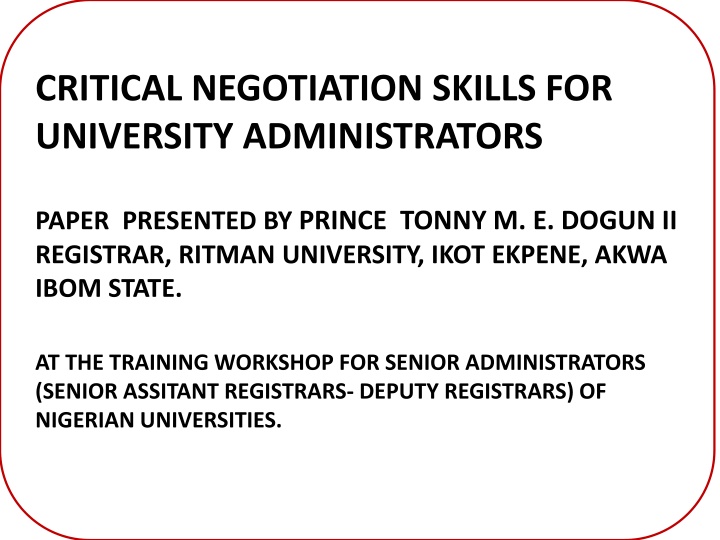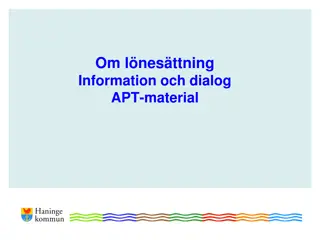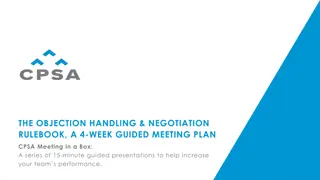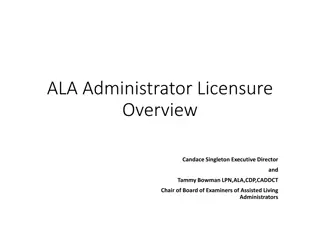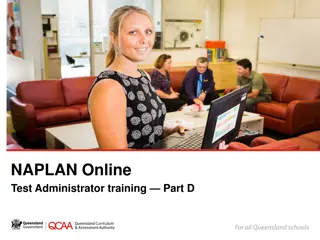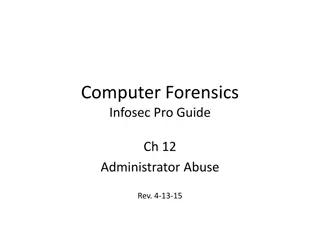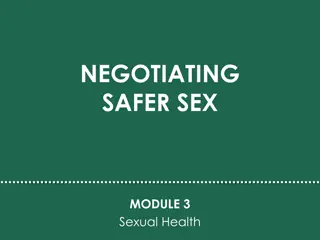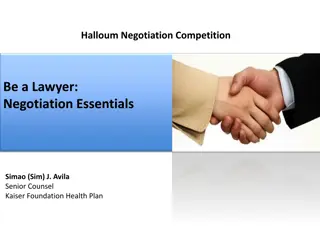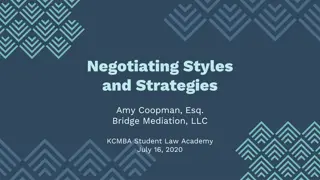Enhancing Negotiation Skills for University Administrators in a Changing World
University administrators must acquire critical negotiation skills to adapt to the evolving landscape of higher education management. The demand for globally-minded leaders who can demonstrate value addition is increasing, necessitating a shift towards more effective and efficient practices. This paper emphasizes the importance of negotiation in fostering success and innovation within university settings.
Download Presentation

Please find below an Image/Link to download the presentation.
The content on the website is provided AS IS for your information and personal use only. It may not be sold, licensed, or shared on other websites without obtaining consent from the author.If you encounter any issues during the download, it is possible that the publisher has removed the file from their server.
You are allowed to download the files provided on this website for personal or commercial use, subject to the condition that they are used lawfully. All files are the property of their respective owners.
The content on the website is provided AS IS for your information and personal use only. It may not be sold, licensed, or shared on other websites without obtaining consent from the author.
E N D
Presentation Transcript
CRITICAL NEGOTIATION SKILLS FOR UNIVERSITY ADMINISTRATORS PAPER PRESENTED BY PRINCE TONNY M. E. DOGUN II REGISTRAR, RITMAN UNIVERSITY, IKOT EKPENE, AKWA IBOM STATE. AT THE TRAINING WORKSHOP FOR SENIOR ADMINISTRATORS (SENIOR ASSITANT REGISTRARS- DEPUTY REGISTRARS) OF NIGERIAN UNIVERSITIES.
1. Everything is negotiable. Whether or not the negotiation is easy is another thing. Carrie Fisher 2. In negotiation, the parties should be more eager to agree than to disagree. T. M. E. Dogun II
QUOTE 3. One of the best ways to persuade others is by listening to them. Dean Rusk 4. Information is a negotiator s greatest weapon. Victor Kiam
CRITICAL NEGOTIATION SKILLS FOR UNIVERSITY ADMINISTRATORS
What is negotiation? 1. The activity or business of negotiating an agreement; coming to terms. 2. A discussion intended to produce an agreement. 3. Discuss the terms of an arrangement.
Job administrators do not list negotiation skills as desirable assets So you may ask, why bother with it now? The reason for having negotiation skills is not far - fetched the world is changing and there is a demand to be globally- minded and to do things differently. There is a growing need and demand to demonstrate relevance value addition to the organisation. descriptions for professional for job candidates. and promote
Beside, its no longer business as usual for University Management, especially in private Universities. New dynamics of keen ownership interest and involvement demand new skills to keep the ship afloat . Abraham Lincoln solutions are no longer adequate for solving today s problems . said- Yesterday s
Hence, new skills and competencies in all fields of endeavor relevance is to be maintained and roles better understood. are required if Today s University administrators must dare to be different as there is a growing demand for things to be done differently and efficiently, too.
Standards, requirements that were once accepted, are now being challenged and re-defined for global relevance. thinking ahead and preparing you both for your present and assignments. expectations and So ANUPA is future roles and The circumstance of negotiation occurs when two parties or groups of individuals
disagree on the solution for a problem or the goal for a project or contract. A successful negotiation requires the two parties to come together and hammer out an agreement that is acceptable to both. However, the ability to negotiate requires a collection of interpersonal and communication skills used together to bring about desired results.
What are these skills 1. Problem Analysis Determine the interests of each party to the negotiation. Have a detailed problem analysis that identifies the issue, the interested parties and the outcome goals. For example, in an contract negotiation, the problem or where the parties disagree may be salary or benefits. employee/employer
Identifying the issues for both side can help find a compromise for all parties. 2. Preparation Before entering a bargaining meeting, the skilled negotiator prepares for the meeting. Preparation determining the goals, areas for trade and alternative with stated goals. In addition, negotiators must study history of the relationship between the two parties and past negotiations to find areas of includes
common goals and agreement. Past precedents and outcomes can set the tone for current negotiations. 3. Active Listening The ability to listen actively is a vital skill in the negotiation process. This involves the ability to read body language as well as verbal communication. It is important to listen attentively to the other party to find areas for compromise
during the meeting. Spending more time listening to the other party is more valuable than spending the bulk of the time expounding the virtues view point. of your 4. Emotional Control It is essential that a negotiator have the ability to keep his emotions in check during the negotiation.
Negotiation on a contentious issue can be frustrating, allowing emotions to take control during the meeting and can lead to unfortunate emotionally entangled negotiation can lead the negotiator to accept a compromise or concede a position in an attempt to end the frustration that emotionally involved. results. Being the during come from being
5. Verbal Communication Having the ability to communicate clearly and effectively to the other side during the negotiation is an ability that is considered indispensable negotiator. Misunderstandings can occur if the negotiator does not state his case clearly. During a bargaining meeting, an effective negotiator must have skills to state his desired outcome as well as his to the
reasoning. 6. Problem Solving Individuals with negotiating skills have the ability to seek a variety of solutions to problems. Instead of focusing on his ultimate goal for the negotiation, the individual with skills solving the problem, which may be a breakdown in communication, to benefit both side of the issue. can focus on
7. Interpersonal Skills. Effective interpersonal skills to maintain a good working relationship with those involved in the negotiation. Negotiators with patience and the ability to persuade others without using manipulation can maintain a positive atmosphere during a difficult negotiation. negotiators have the
8. Decision Making Ability One of the important skills a leader should have is the ability to make good decisions. Leaders with negotiation skills have the ability to act wisely and decisively during a negotiation.
9. Collaboration and Teamwork. Negotiation is not necessarily a one side against another arrangement. Effective negotiators must have the skills to work together as a team and foster a collaborative atmosphere during negotiations.
10. Ethics and Reliability Demonstrating ethical standards and reliability in negotiations promotes a trusting environment for openness and freedom. Both sides in a negotiation must trust that the other party will follow through on promises and agreements. A negotiator must have execute on his bargaining ends. the promise skills to after
Bibliography 1. Getting to Yes: Negotiating Agreement Without Giving In. Roger Fisher & William L. Ury. 2. Getting Past No. William Ury. 3. Getting More: How to Negotiate to Achieve Your Goals in the Real world. Stuart Diamond.
